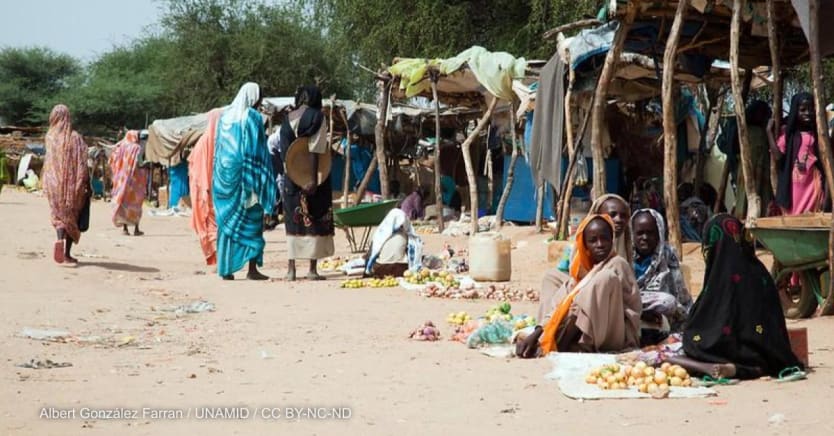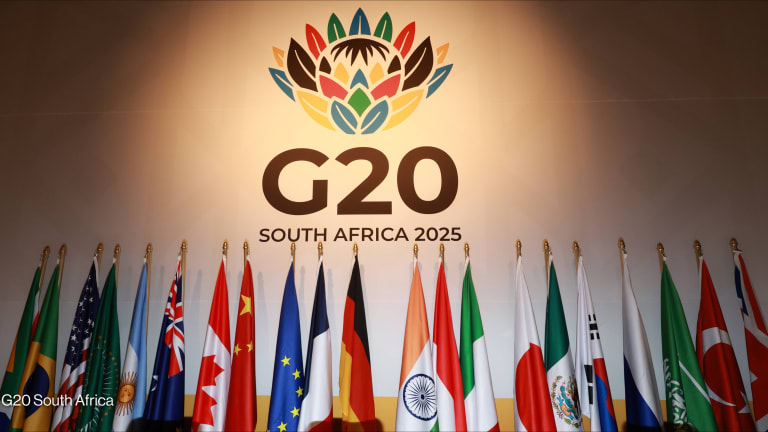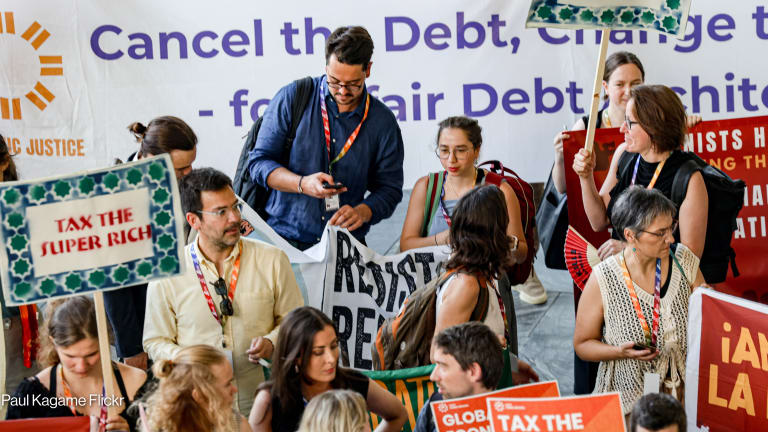
Sudan has overcome a major hurdle in its path toward massive debt relief that could see nearly 90% of the country’s debt burden cleared over the coming years. The announcement by the International Monetary Fund means Khartoum is now able to get loans, along with international aid and development assistance.
IMF is already moving ahead, authorizing a $2.5 billion loan for Sudan, of which approximately $1.4 billion will be made available immediately.
“Sudan’s debt will go from about $56.6 billion to about $6 billion at the completion point,” Carol Baker, IMF mission chief for Sudan, told journalists Tuesday. She estimated the full process could take about three years, during which Sudan must demonstrate good governance and complete key reforms.
Baker spoke after IMF’s executive board announced that Sudan has passed what is known as the “decision point” under IMF and World Bank’s Heavily Indebted Poor Countries Initiative, or HIPC. She said the move “paves a path to irrevocable debt relief.”
Sudan reaching this milestone leaves only one country — Eritrea — at the pre-decision point stage among the 39 nations that have been eligible or potentially eligible for HIPC relief.
The next step will see the Sudanese government hold talks with wealthy creditor nations to clear nearly half of its bilateral debt obligations, which in no small part were accrued under past leaders going back to the 1970s.
“Sudan will proceed to negotiations with the Paris Club in July,” tweeted Magdi Amin, a senior adviser for Sudan’s Ministry of Finance and Economic Planning, in reference to the grouping of 22 major creditor nations.
Baker said that under the plan, traditional debt relief mechanisms will clear about $26 billion for Sudan, while HIPC is expected to resolve an additional $23 billion. The HIPC relief for the country is three times as large as any previous case under the initiative, IMF and the World Bank said.
“We can create certain conditions and remove obstacles, but at the end of the day, we need to begin to see Sudan as a destination for investment.”
— Cameron Hudson, senior fellow, Atlantic CouncilWindow of opportunity
Cameron Hudson, a senior fellow at the Atlantic Council think tank and a former chief of staff at the Office of the U.S. Special Envoy to Sudan, sees this as an example of how the international community should respond when a country is at a turning point.
“We have a very narrow window of opportunity to get it right and lay the foundations for a successful transition,” he said.
In particular, he said, the international community ”moved very quickly” after the appointment of Sudan’s post-revolution transitional government in 2019 and worked in tandem on a range of relief projects, allowing the country to reach the HIPC decision point in record time.
For example, the U.S. delisted Khartoum as a state sponsor of terrorism in 2020, and it organized bridge loans and additional financing deals along other wealthy nations to help clear arrears at the World Bank and African Development Bank. Finally, $1.4 billion in arrears to IMF was cleared, with about 120 nations, including low-income countries, chipping in to make it happen.
Even so, rewards “won’t be immediate” for people on the ground, Hudson warned, and international donors will have to continue offering support.
“What’s most critical is that people begin to see some democracy dividend, a payoff for their sacrifices,” Hudson told Devex.
‘A monumental step forward’
The economic pain in Sudan has been harsh for years. The country was battered by economic mismanagement prior to the overthrow of long-serving strongman Omar al-Bashir in 2019. Al-Bashir’s government was an international pariah, and the country was cut off from the global economy.
Since then, the joint civilian-military government has been enacting a series of excruciating economic reforms that have seen the currency sharply lose value and inflation soar to 342% in March, according to the state statistics agency.
The country also faces the fallout from the COVID-19 pandemic, on top of floods and a plague of locusts. The number of people needing humanitarian assistance in Sudan has more than doubled since 2015, according to the United Nations.
In rural Sudan, households spend more than 75% of their income on food, the U.N. estimates, and the situation is only getting worse.
“The civilians have suffered, and this is a way to begin to ameliorate the suffering,” Joseph Tucker, an expert with the U.S. Institute of Peace who previously advised the U.S. Agency for International Development’s Sudan efforts, said of the debt relief deal, calling it “a monumental step forward.”
Sudan needs a multipronged approach for tackling its myriad issues, including politically sensitive agricultural land reforms and programs to ensure that conflicts, such as the one in Darfur, do not flare up again, Tucker told Devex.
“They also need to look at small-scale livelihood and resilience programs, with an eye towards increasing stability,” he said.
The World Bank is currently working with the government and international donors on the Sudan Family Support Program, which doles out cash to households in need. Tucker said such a program is vital for a country going through a transition.
However, Theodore Murphy, a Horn of Africa expert at the European Council on Foreign Relations, cautioned that donor nations have primarily been focused on economic reforms while letting their attention drift from political issues.
Funding gaps hinder response to Sudan’s unprecedented floods
As Sudan grapples with the effects of unprecedented flooding, humanitarian groups have raised concerns over funding gaps as food security and health threats loom.
“The idea driving that was Sudan’s economic dire straits. This was the most pressing threat and threatened the country with potential collapse if not addressed,” he said. Still, until political reforms ensure lasting stability, foreign investors will shy away from entering the country, he added.
“This is a government with deep contradictions,” Murphy said, noting that its leadership is a delicate hybrid mechanism, composed of civilians, military leaders from the previous government, and former rebels.
Hudson said there is an “enormous task” ahead for the Sudanese government to enact the types of reforms that will ensure the continued support of donors and draw in external capital from the private sector.
“We can create certain conditions and remove obstacles, but at the end of the day, we need to begin to see Sudan as a destination for investment,” he said.
And that requires more than just economics, he added. “We need reforms in the political and security space.”








